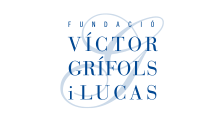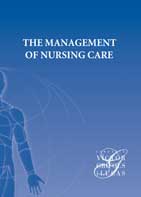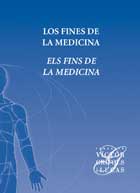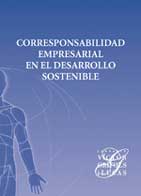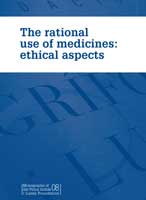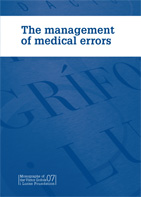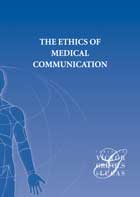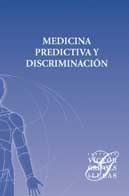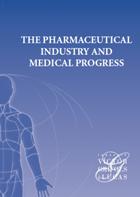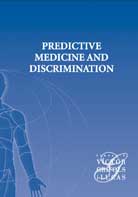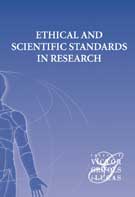12. The management of nursing care
According to the ethics of caring there is an ethical dimension which is intrinsic to any care act, and this enriches the discourse of health ethics and helps us to view it from the perspective of the health service user, patient or family receiving care. The way in which nurses care proposes a concept of what has to be done and how it has to be implemented, and becomes particularly important if we genuinely want to focus our care model on the patient or service user. In the organization of a health service, we must consider the basic principles of professional care as a minimum standard which has the same importance as the basic principles of treating illnesses.
11. Los fines de la medicina (The Goals of Medicine)
A group of researchers from the Hastings Center wrote an essay which has been translated by the Victor Grifols i Lucas Foundation into Spanish and Catalan. This document attempts to demystify medicine so that putting it to use can truly mean progress for all of humanity. The goals of medicine at the end of the twentieth century should go beyond curing the ill and lengthening life.
The Grifols Foundation has translated this document to highlight the values which the contents transmit and which articulate the objectives of the Foundation's activities. The translation of this document is intended to spread these values to those who work in the health sciences.
10. Corresponsabilidad empresarial en el desarrollo sostenible (Corporate responsibility in sustainable development)
The need for sustainable development is widely recognized by society, many governments, local administrations, social agencies and by a large part of the business sector. It is well known that the current economic growth cannot be sustained in perpetuity. Society must ensure that growth can be maintained for future generations without being limited by the current way of doing things.
A cultural change is necessary so that the citizenry assumes responsibility and actively participates in this new "way of life". Many different parties would be implicated in such a change: the business sector, government, NGO's, business schools and universities, unions and the press. This essay takes all these points of view into consideration. The monograph includes all of these points of view, in addition to which it contains an appendix of case studies
09. Ethics and sedation at the close of life
Sedation is something which requires both respect for the autonomy and dignity of the patient and also the best care on the part of the health professionals who look after for patients nearing death.
The objective of this monograph is to publish the debate between palliative care professionals, oncologists, internists, surgeons, health administrators, journalists, psychiatrists, psychologists, nurses, lawyers and bio-ethicists on advancing knowledge and good praxis in sedation to facilitate the work of clinicians.
08. The rational use of medicines: ethical aspects
The growing number and rising costs of new medications on the market combined with an aging population which consumes increasing amounts of health resources compels society to reflect on the best way to distribute these limited resources, while taking into consideration medical, economic, legislative and ethical concerns. This monograph, edited in collaboration with Ediciones Doyma, has a multi-disciplinary dimension, as experts from different fields offer diverse approaches in dealing with this issue giving the reader a range of standpoints from which to make an informed opinion.
07. The management of medical errors
The Foundation's seventh publication summarizes the ethical conflicts caused by managing medical errors. This analysis is presented by Jaume Aubia, Vice President of the Col·legi de Metges of Barcelona in his talk entitled "Medical errors: protection systems and their paradoxes". This compliments the legal opinion offered by Doctor Ricardo de Lorenzo, President of the Spanish Health Law Association. Both viewpoints are supported by the contributions of a range of specialists in this subject.
06. The Ethics of medical communication
The sixth monograph published by the Foundation is dedicated to debating the field of scientific and medical communication from two points of view: that of the the doctor, represented by Dr. Miquel Vilardell, Head of the Internal Medicine Service of the Hospital Vall d'Hebron in Barcelona and that of the journalist, represented by Dr. Gemma Revuelta, Subdirector of the Scientific Communication Observatory of the Pompeu Fabra University in Barcelona. Scientific journalist and trustee of the Foundation, Vladimir de Semir provides the introduction to this journal and presents the various contributions from the interdisciplinary group of specialists invited to share their views.
05. Practical problems of informed consent
04. Predictive medicine and discrimination
This publication considers the medical and legal views on predictive medicine offered by two experts, Doctor Xavier Estivill, Head of the Centre for Medical and Molecular Genetics at the Cancer Research Institute of l'Hospitalet, Barcelona, with his speech, "Towards a predictive medicine?" and Doctor Mirentxu Corcoy, Professor of Penal Law at the Public University of Navarra with her speech, "Predictive medicine and discrimination." These two views are complemented with a discussion by an interdisciplinary group of specialists coordinated by Doctor Josep Egozcue, Vice President of the Foundation.
03. The Pharmaceutical industry and medical progress
This article deals with the ethical conflicts that are generated by the very concept of "medical progress" and also addresses the different interests of the pharmaceutical industry. It combines the lecture "The influence of medical progress and of the pharmaceutical industry on our health" presented by the Director of the Healthcare Research Fund, Dr. Fernando García Alonso and the speech delivered by the Managing Director of S.A.L.V.A.T laboratories, Mr. Javier Peris "The pharmaceutical industry and medical progress". These two points of view opened a debate between a group of pharmacologists, doctors, philosophers and journalists, whose contributions are also included in this publication.
02. Ethical and scientific standards in research
Monograph that addresses the subject of both ethical and scientific standards applied to research. It includes the lectures entitled "Ethical and scientific norms in clinical trials for medicines" and "The ethics of research in developing countries" given by two well-known professors in the field, Professor Silvio Garattini, Director of the "Mario Negri" Institute of Pharmacological Research of Italy, and Professor Solomon R. Benatar, Director of the University of Cape Town Bioethics Center of South Africa. Both lectures are accompanied by the views of various specialists in this subject.
01. Freedom and Health
Freedom and health are two of the most important values of our time. While individual freedom is the basic right of everyone, health is one of the basic goods of the welfare state. Working from different perspectives, the authors of this monograph analyze the relationship between these two values. Hugo Tristram Engelhardt considers it from a philosophical perspective, Stefano Rodotà from a legal perspective, and Marcelo Palacios from the perspective of health.
